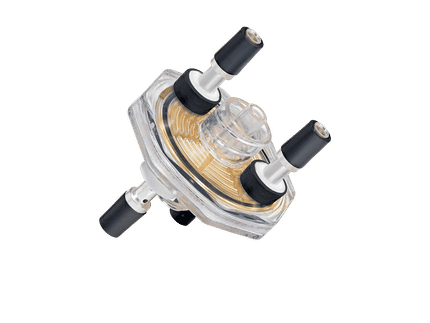Renal colic
Classification & external resources
| ICD-10
| N23.
|
| ICD-9
| 788.0
|
| DiseasesDB
| 26026
|
Renal colic is a type of pain commonly caused by kidney stones.
Presentation
The pain typically begins in the kidney area or below it and radiates through the flank until it reaches the bladder. The pain is colicky in nature, meaning that it comes on in spasmodic waves as opposed to being a steady continuous pain. It may come in two varieties: dull and acute; the acute variation is particularly unpleasant and has been described as one of the strongest pain sensations felt by humans.[1]
Depending on the type and sizes of the kidney stones moving through the urinal tract the pain may be stronger in the renal or bladder area or equally strong in both.
Prognosis and treatment
Most small stones are passed spontaneously and only pain management is required. For this type of pain, strong non-steroidal anti-inflammatory drugs (NSAID) such as diclofenac provide better pain relief than opiates. Lying down on the non-aching side and applying a hot bottle or towel to the area affected may help. If the pain is not too intense, a more speedy release of the stones may be achieved by walking. Larger stones may require intervention for their removal.
See also
References
- ^ eMedicine - Nephrolithiasis: Acute Renal Colic : Article by Stephen W Leslie. Retrieved on 2008-01-01.
| Symptoms and signs (R00-R69, 780-789) |
|---|
Circulatory and
respiratory systems | Tachycardia - Bradycardia - Palpitation - Heart murmur - Epistaxis - Hemoptysis - Cough - abnormalities of breathing (Dyspnea, Orthopnoea, Stridor, Wheeze, Cheyne-Stokes respiration, Hyperventilation, Mouth breathing, Hiccup, Bradypnea, Hypoventilation) - Chest pain - Asphyxia - Pleurisy - Respiratory arrest - Sputum - Bruit/Carotid bruit - Rales |
|---|
| Digestive system and abdomen | Abdominal pain (Acute abdomen) - Nausea/Vomiting - Heartburn - Dysphagia - flatulence and related (Abdominal distension, Bloating, Burping, Tympanites) - Fecal incontinence (Encopresis) - hepatosplenomegaly (Hepatomegaly, Splenomegaly) - Jaundice - Ascites - Fecal occult blood - Halitosis |
|---|
| Skin and subcutaneous tissue | disturbances of skin sensation (Hypoesthesia, Paresthesia, Hyperesthesia) - Rash - Cyanosis - Pallor - Flushing - Petechia - Desquamation - Induration - Diaphoresis |
|---|
Nervous and
musculoskeletal systems | abnormal involuntary movements (Tremor, Spasm, Fasciculation, Athetosis) - Gait abnormality - lack of coordination (Ataxia, Dysmetria, Dysdiadochokinesia, Hypotonia) - Tetany - Meningism - Hyperreflexia |
|---|
| Urinary system | Renal colic - Dysuria - Vesical tenesmus - Urinary incontinence - Urinary retention - Oliguria - Polyuria - Nocturia - Extravasation of urine - Extrarenal uremia |
|---|
Cognition, perception,
emotional state and behaviour | Anxiety - Somnolence - Coma - Amnesia (Anterograde amnesia, Retrograde amnesia) - Dizziness/Vertigo - smell and taste (Anosmia, Ageusia, Parosmia, Parageusia) |
|---|
| Speech and voice | speech disturbances (Dysphasia, Aphasia, Dysarthria) - symbolic dysfunctions (Dyslexia, Alexia, Agnosia, Apraxia, Acalculia, Agraphia) - voice disturbances (Dysphonia, Aphonia) |
|---|
| General symptoms and signs | Fever (Hyperpyrexia) - Headache - Chronic pain - Malaise/Fatigue (Asthenia, Debility) - Fainting (Vasovagal syncope) - Febrile seizure - Shock (Cardiogenic shock) - Lymphadenopathy - Edema (Peripheral edema, Anasarca) - Hyperhidrosis (Sleep hyperhidrosis) - Delayed milestone - Failure to thrive - Short stature (Idiopathic) - food and fluid intake (Anorexia, Polydipsia, Polyphagia) - Cachexia - Xerostomia - Clubbing |
|---|
|







